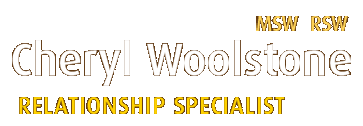How Can I Forgive You?
Cheap forgiveness is a quick and easy pardon.
There is no processing of emotion and no coming to terms with the injury.
When you refuse to forgive, you hold tenaciously to your anger. When you forgive cheaply, you simply let your anger go. Is there another way of looking at this age old dilemma?
Is forgiveness good for you? Is it necessary to forgive in order to heal? Perhaps not.
How Can I Forgive You?, by Janis Abrahams Spring, PhD., takes an unorthodox view of the notion that forgiveness is necessary in order to heal from an interpersonal injury.
Her book is an imperative read for anyone who has ever felt betrayed or hurt in a relationship. She cuts through all the cliches and offers a fresh and original approach to an ancient challenge.
Forgiveness has been marketed as the new mental and physical panacea, a healing balm that cures every dilemma.
Dr. Spring’s clinical experience with her clients has taught her otherwise, and I would agree.
What she has learned over the years:
- You can heal yourself and clear your mind of emotional sludge – resentment, rage, hurt and shame – with or without forgiving.
- You can release your bitter and obsessive preoccupation with getting even – with or without forgiving
- You can make peace with yourself and come to terms with what happened – with or without forgiving
- You can get back together if you chose, without selling yourself short – with or without forgiving
You can do all this for yourself and by yourself, even if the offender is unapologetic, even if she refuses to acknowledge your pain or refuses to apply salve to your wound – even if he has passed on.
This radical, new “something” is what Dr. Springs calls “acceptance”, a solid program of self-care, a generous healing gift to yourself.
Acceptance helps you:
- be true to yourself and honour the full force of the violation
- overcome fantasies of revenge while seeking a just resolution
- ensure your emotional and physical safety
- restore and integrate your valued self
- forge a relationship with the person who has hurt you that satisfies your personal goals
- forgive yourself for your own failings that caused you harm
This book is a grounded, realistic approach to a complex psychological experience. Many of the couples and families that I work with decide to stay in relationship with the person who has hurt them. In order to do so and not sell yourself short or diminish the depth of hurt there is a lengthy, painful process that takes place.
“Cheap forgiveness” or “peace at any price”, may preserve your relationship, but it will destroy any chance at the development of an intimate bond. It will block personal growth, denying you insights into yourself that would help you develop more satisfying relationships.
If your pattern is to forgive at any price, it will take courage and a conscious effort to tune into your feelings and let your voice be heard.
Tags: Acceptance, Book Reviews, Forgiveness, Relationship
This entry was posted on Monday, October 11th, 2010 at 3:30 PM and is filed under Book Reviews. You can follow any responses to this entry through the RSS 2.0 feed. You can leave a response, or trackback from your own site.




